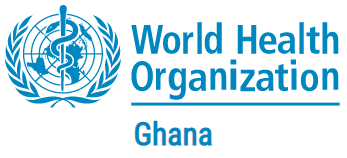World Health Organization (WHO) Supports Training of Field Officers to conduct Poliovirus Containment Activities in Ghana
Ghana continues to make impressive strides in the fight against poliovirus, with the last confirmed case of Wild Poliovirus (WPV) recorded in 2008 and the most recent Variant Poliovirus (VDPV) detected in 2024. As the number of confirmed polio cases and detection of the virus in the environment decline steadily, the World Health Organization (WHO) and partners remain committed in minimizing the risk of reintroduction of poliovirus.
On 5 June 2025, the Ghana Health Service, with funding and technical assistance from WHO, organized a training for field officers for a nationwide survey on poliovirus containment and risk assessment. The exercise was designed to ensure that biomedical laboratories handling poliovirus infectious or Potentially Infectious Materials (PIMs) are not inadvertently creating pathways for virus reintroduction.
Participants at the orientation were trained on the use of the WHO Open Data Kit (ODK) toolkit for conducting surveys, assessing risks in biomedical laboratories, and supporting facilities to implement appropriate biosafety and decontamination measures in line with WHO’s containment guidelines (GAPIII and GAPIV). Discussions also covered survey methodologies, biosafety and biosecurity practices.
Speaking at the training, Dr. Lawson Ahadzie, Chairman of the National Certification Committee on Polio Eradication, stressed the importance of following up with the recommendations of the survey.
“We are in the final lap of polio eradication. What remains is ensuring that all possible sources of virus reintroduction—especially from laboratories—are identified and secured. This training equips field officers with the skills to do just that”, he said.
Dr Raymond Dankoli, Global Polio Eradication Initiative Coordinator, highlighted the importance of the survey and implementation of findings. “This can also be seen as part of the general response measures to the confirmed Polio event in August 2024”, he added.
The last PIMs Survey and national risk assessment in 2022 identified seven laboratories across the country storing Poliovirus Potentially Infectious Materials (PV PIMs). These materials were classified as PIMs due to no laboratory investigations conducted. They were however securely contained within Biosafety Level 2 (BSL-2) laboratories, with stringent decontamination and waste management protocols. Additionally, 66 vaccine repositories across regional and district hospitals were found to contain Sabin/bOPV stocks for routine vaccination activities.
Dr. Michael Adjabeng, Surveillance Officer with WHO Ghana, emphasized the need for the involvement of all stakeholders in the containment activities. “Ghana has come far, but the job isn’t finished. Containment is about responsibility. It’s about making sure we build upon progress made. This survey is a key part of that effort”, he stated.
Findings from the survey will be disseminated to key stakeholders, given the broader implications for containment and risk mitigation strategies. This survey will help identify any PV PIMs present in biomedical laboratories and ensure their appropriate handling and disposal in accordance with WHO containment guidelines for a polio free world.
Distributed by APO Group on behalf of World Health Organization (WHO), Ghana.



